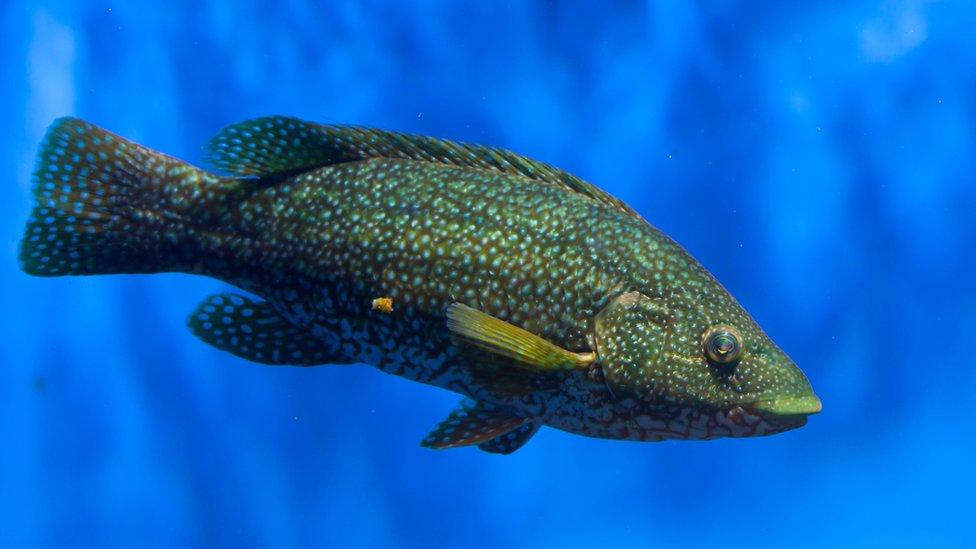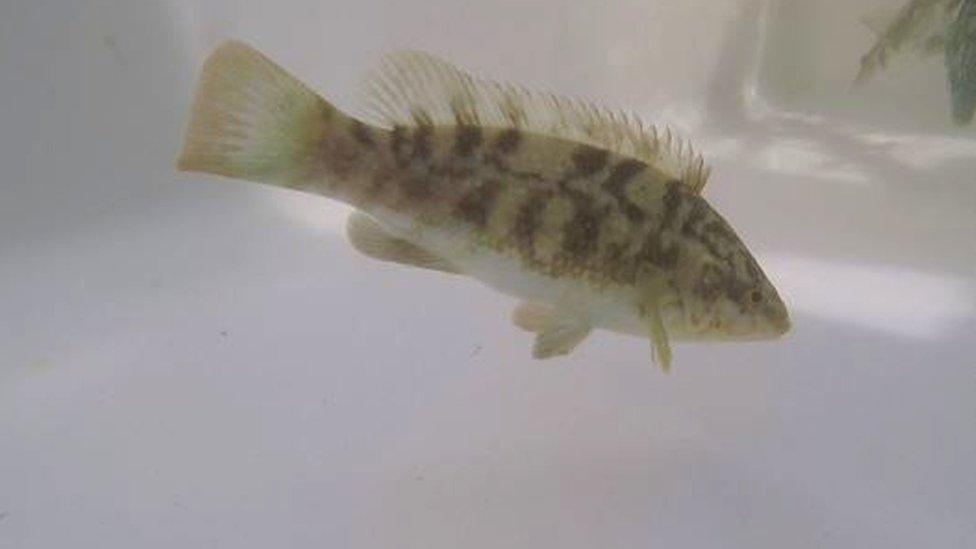Proposal to regulate 'cleaner fish' harvesting for fish farms
- Published

Wrasse are released in salmon cages to attack and eat parasitic lice
Measures could be put in place to better protect stocks of wild fish used in the salmon farming industry to control parasitic sea lice.
The "cleaner fish" - mostly wrasse - are harvested under a voluntary code of practice.
The Scottish government is consulting, external on the introduction of new mandatory measures to maintain "healthy stocks".
Under the proposals, fishermen would have to meet certain criteria to obtain a permit for harvesting wrasse.
They would need a "proven track record" of harvesting and submitting returns showing numbers of fish caught over the past two years.
Different species
Also, they would need evidence of having an appropriate contract with a salmon farm operator to supply wrasse.
Limits would also be placed on the size of the different species of wrasse harvested.
Wrasse are released in salmon cages to attack and eat parasitic sea lice - reducing the amount of medicinal treatments used to control lice.
Concerns about the impact of their harvesting have been raised in the past.
Marine Scotland, a directorate of the Scottish government, has been working with the salmon farming industry on voluntary measures to protect stocks of cleaner fish.
In its consultation, Marine Scotland said the "overall goal" of the proposed new rules was to "maintain a healthy wild wrasse stock that is fished sustainably".
Charles Millar, executive director of the Sustainable Inshore Fisheries Trust, which has campaigned for wrasse stocks to be protected, said: "There were no limits to the amount of wrasse that could be caught last year. There was no closure even for protected environments like rocky reefs and kelp forests. The summer breeding season should be closed. Instead the fishery was closed while wrasse hibernate.
"The weak measures in this consultation change none of that. And, what's worse, the form doesn't even allow anyone to say they think proper controls should be brought in. This approach is inconsistent with basic democratic good practice, with the long term sustainability of the fish farming sector, and with the protection of these vital species."
- Published21 June 2017
